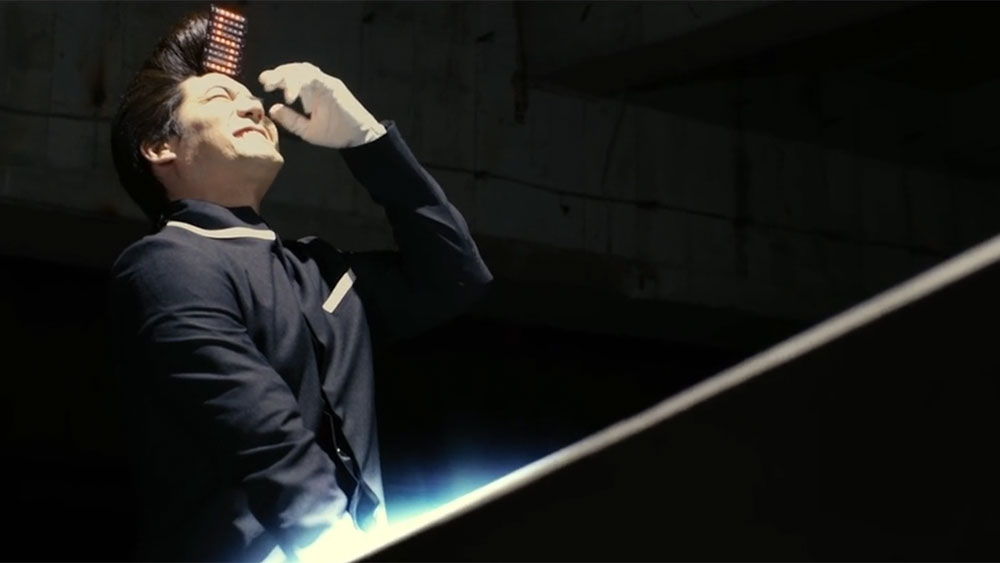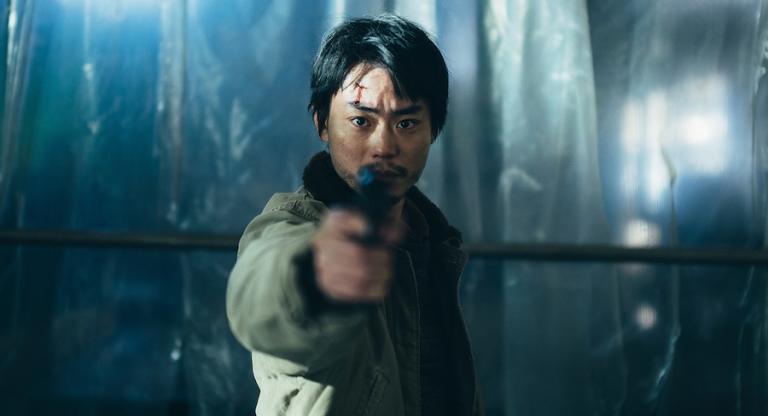Toward the end of a lengthy debate, an android in favor of human coexistence clarifies an ally’s point. “You speak of the family itself, the deepest and most complex connection in all existence. And one exclusive to humanity.” I’m sorry elephants. Whales, especially orcas. Prairie dogs, meerkats, gray wolves, and numerous other examples of extrafamilial, and even extra-species fosterings and sociability abound. But the statement that family bonds, blood and otherwise, are deeply important and uniquely human is the kind of information I expect from artificial intelligence—presented with an air of authority rooted in tech optimism and supposed petabytes of data combed, and foundationally incorrect. Whether this slip was intentional is unimportant; screenwriter and producer Kyosuke Ichinose wanted to “provoke heated debate” with Singula (2024) My wanting to discuss why I find its arguments a little corny means it succeeded.
Since most of Singula is an intense discussion between contrasting personalities unfolding in one location, I’m tempted to call it My Dinner With AndrAI. Instead of two estranged friends, there’s fifteen visually identical androids, sporting pompadours straight out of a Roller-zoku gang. Conflating medical and humoral theory, each is identified by number and body element. Each is imprinted—or infected, depending how they see it—with a different human’s memories. Their purpose, and goal, is to decide whether to coexist with or eliminate the human race. As the double identities of programmed android and human memory merge, their mission clouds.
Singula continues director Tsutsumi Yukihiko’s intentionally limited filmmaking, incorporating Kyosuke’s business-structured approach to perpetuating artistic creation. (After attending Oberlin in the 2000s, Kyosuke left the arts for business, then left business to pursue art.) In an interview, he described his attitude as, “If we don't just have the mindset of 'I want to do something or create something,' but also, ‘I want to create this kind of society’ through entertainment and art, it won't spread and won't last. Also, the viewers will have no idea what to do. I think it's better to know exactly why you're going to see a play, or why you're coming into contact with art….I wish that creators and customers could become like one big family, without any boundaries.''
Singula’s themes extend to reality; the movie was entirely crowdfunded online and shot in English to “compete on the world stage.” The Vocaloid icon Hatsune Miku sings the film’s theme. Low-budget technical wizardry eliminates the sensed boundaries of split-screen, merging multiple performances with convincing physicality and light. Several AI translators were even used to research this piece. The title is a play on The Singularity, a concept indicating the point when technology advances beyond human control and unique personal qualities. In the film, the latter rests heavily on the shoulders of spi (also known as William Worthington Spearman IV), the charming performer playing all fifteen androids. He’s doing yeoman’s work projecting individual personalities through movement and gesture; the android 3/Organs was based on Morgan Freeman and carries his gravitas. But there is a blurry line demarcating regional dialect and vocal blackface; which side several characters fall on, I leave to the viewer. Yet, it remains an impressive acting feat, especially considering spi’s first language is Japanese, and that his performances were filmed in just seven days during a break from another production.
There’s much I’d like to say about the conclusions, or intentional lack of, that Singula comes to, but I don’t want to spoil the film. A drug dealer’s memory of killing over 10 million people—a power of ten times higher than the Sacklers’ body count—seems questionable. God’s brought up a surprising amount for robot minds. Regarding 15/Heart’s triumphant question to 5/Blood, “Do you love the Professor, or not?” Girl, have you read Frankenstein? Creation does not guarantee gratitude or affection toward the creator, nor vice versa. Still, that neither side sways the other reflects that the intractable moment we’re mired in is definitely not solvable through AI. 3/Organs’ coup de grace, “So then we become machines that learn and learn and learn without ever being loved” is actually several start-ups’ selling point. The cruelest blow comes from 11/Forehead: “For some reason every single part of the art world is always struggling to get by. It seems like humans don't see much value in them, does it?” A better world might be possible, but we’re living the live-action version of Universal Paperclips, and this is the world humans made. But on the positive side, Singula is a successful experiment in merging technology, economic pragmatism, and artistic creation to get weighty ideas out to wider-than-usual audiences. I hope the film’s run at Spectacle is only version 1.0.
Singula screens tonight, March 7, and throughout the month at Spectacle Theater. Director Yukihiko Tsutsumi will participate in a post-screening virtual Q&A.



